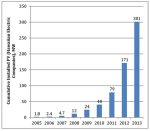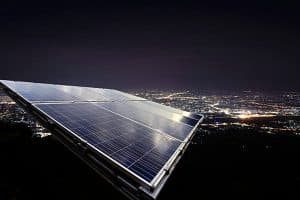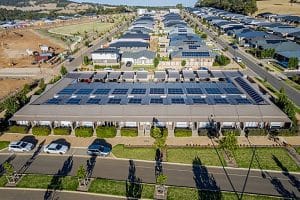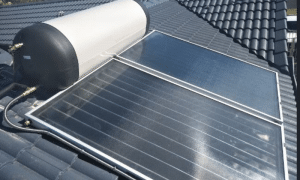More than 129 megawatts of solar capacity was added to Hawaiian Electric Companies’ grids last year.
The new 17,609 solar installations’ collective capacity represents a 39 percent increase on what was added in 2012.
By the end of last year, a total of 40,159 solar power systems with a capacity of 300 MW were active. To provide a better idea of the pace of growth; in 2009 just 24 MW of solar capacity was in place.
10 percent of Hawaiian Electric customers now have rooftop solar panels (29,000 photovoltaic systems), a higher percentage than any mainland utility the company says.
Hawaii has traditionally relied heavily on imports of petroleum and coal for power – but that has been rapidly changing.
Another major milestone in Hawaii’s pursuit of clean energy was realised last week with the deactivation of the oil-fuelled Honolulu Power Plant. Hawaiian Electric Companies are planning to deactivate a total of 226 MW of fossil fuel based generation by the end of 2016.
“This is a sign of Hawaii’s progress in reducing its dependence on oil,” said Ron Cox, Hawaiian Electric’s vice president of power supply.
“Thanks to the tremendous growth in renewable energy and more efficient use of electricity by our customers, we’re able to deactivate older, oil-fired generating units.”
Up until recently, electricity generation accounted for 33% of imported oil consumption.
More than 18 percent of the electricity consumed by customers of Hawaiian Electric Companies, which consists of Hawaiian Electric, Maui Electric and Hawaii Electric Light, is now sourced from renewables – exceeding the state’s goal of 15% by 2015.
The three companies serve 95% of the state’s 1.2 million residents on the islands of Oahu, Maui, Hawaii Island, Lanai and Molokai. Combined, the three had a generation capacity totalling 1,817 MW capacity at the end of last year.







































